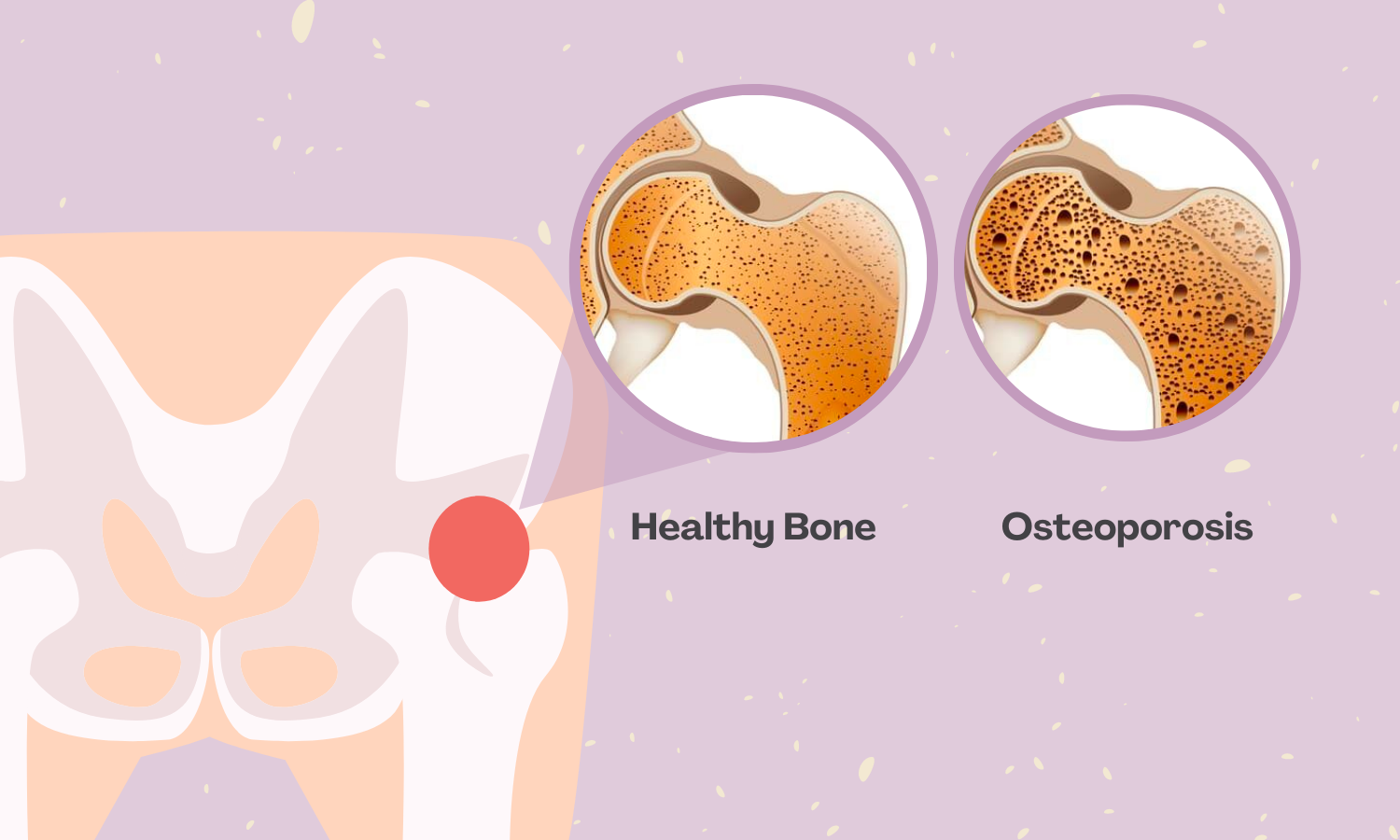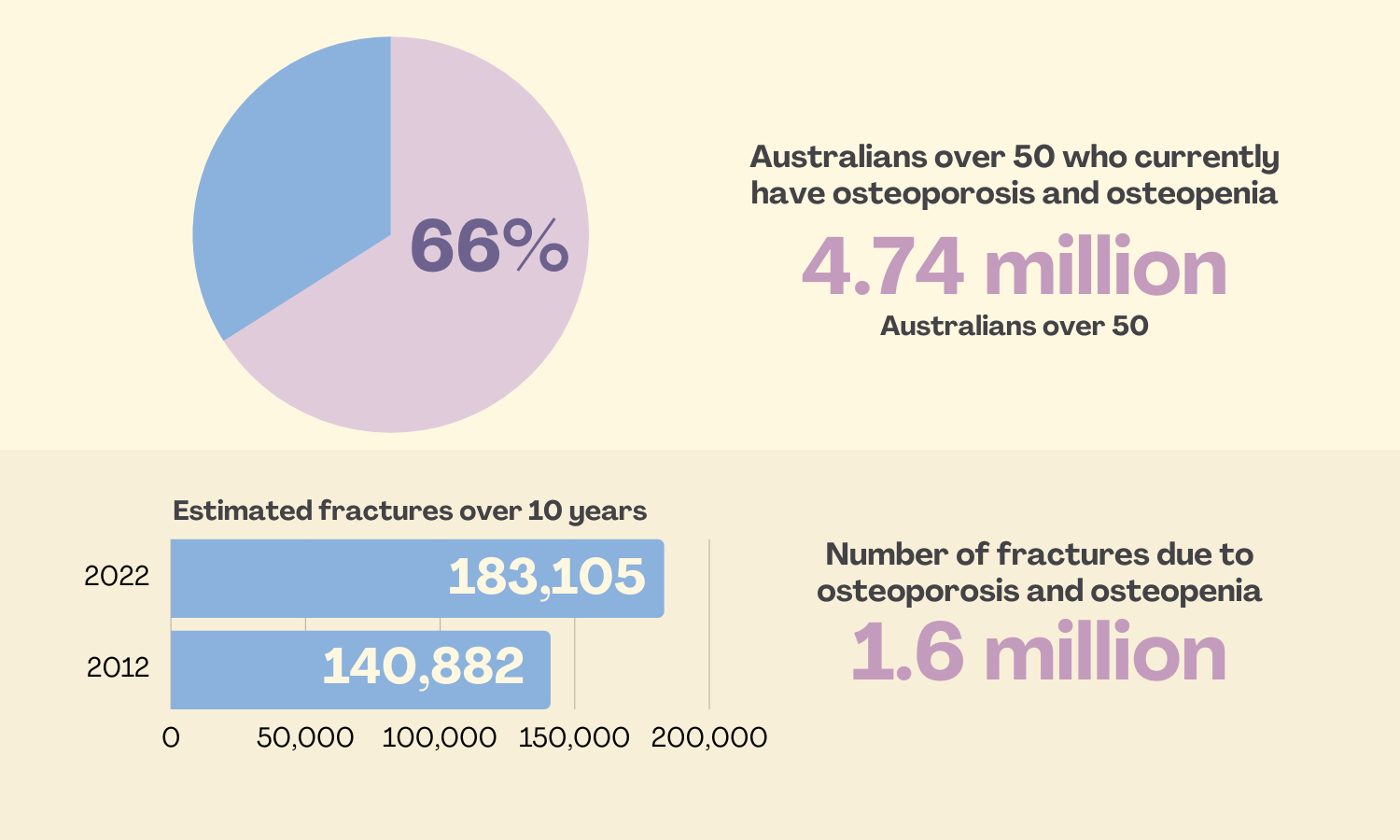Health spotlight: Bone health
It's time to give our bones a little extra love and attention. In this blog post, we're shining a spotlight on bone health. It might not be something you think about every day, but taking care of your bones now can set you up for a strong and fracture-resistant future.
What is Osteoporosis?
Osteoporosis, or 'porous bones,' happens when your bones lose minerals like calcium faster than your body can replenish them. In simple terms, it makes your bones thin, weak, and prone to breaking even from a minor tumble. Seriously, even falling out of bed can lead to a fracture. Ouch!
It usually affects common areas like the hips, spine, wrists, ribs, pelvis, and upper arms. And guess what? Often, there are no warning signs until you've got a broken bone on your hands. And did you know that some women can develop osteoporosis at an early age? Yeah, it's often due to illness or hormonal deficiencies.
Healthy versus osteoporotic bone
What is Osteopenia?
Osteopenia is a term that's like a middle ground between normal bone density and full-blown osteoporosis. Think of it as your bones getting a bit less dense and strong. It's a warning sign that your bone health needs some attention, but it's not as severe as osteoporosis. A bit like a yellow traffic light, telling you to slow down before the red light hits.
Causes of osteoporosis & osteopenia
Age is a natural culprit—as the years tick on, our bones weaken. But there's more to the story. Some medications (like those for cancer, arthritis, and asthma) and illnesses (hyperthyroidism, anyone?) can lower your bone density too. And don't forget about lifestyle factors, like drinking too much or smoking. Plus for women, hormonal changes like menopause can play a part too.
See here for a list of other conditions that may be associated with a decrease in bone density.
Signs and symptoms to watch for
How do you know if your bones are playing nice or getting ready to crumble? Osteoporosis doesn't come knocking with flashy symptoms. Instead, it often surprises us with a fracture, especially in the spine, hips, and wrists. So, if you notice a loss of height as you age or if a minor knock leaves you with a fracture souvenir, it might be time to give your bones some TLC.
Of all osteoporotic fractures in Australia:
46% are vertebral (bones in the spinal column)
16% are hip
16% are wrist
How much is spent on osteoporosis?
Source: Zurich Insurance Group. Cost of care whitepaper.
Most people who have an osteoporosis-related fracture will experience re-fracture within 4 years.
How to keep osteoporosis at bay
Now let’s talk about keeping those bones in tip-top shape. It's not rocket science—just a few simple moves to give your bones the love they deserve. Check out these bone-boosting tricks:
Calcium: Make calcium your friend! Adults aged 19-50 and fellas aged 51-70 need 1,000 milligrams of calcium daily. Ladies aged 51+ and blokes aged 71+ should aim for 1,200 milligrams. Get your fix from dairy, almonds, kale, sardines, and even tofu. If you're a bit calcium shy, chat with your doc about supplements.
Vitamin D: Vitamin D is calcium's trusty partner—they go hand in hand. Adults aged 19-70 should rock 600 IU of vitamin D a day, while those 71+ should aim for 800 IU. Get it from fish like salmon, eggs, and sunny moments. Fortified foods and supplements can help too!
We like to move it, move it: Include weight-bearing exercises like walking, jogging, or stair-climbing. They're like a gym for your bones, making them boss-level strong and slowing down bone loss.
It's important to chat with your doc about a few things:
what foods and how much you should scoff down to keep a healthy diet
how to get to a healthy weight (carrying too much can place a strain on your bones and being underweight ain't good either)
chucking the smokes away, definitely a great idea!
what kind and how much exercise is best for you.
Your bones might not be the life of the party, but they're certainly worth looking after. Remember, taking care of your bone health now can save you from dealing with fractures and all sorts of unpleasant surprises later. So, keep those bones strong, get some sun for that vitamin D, and don't be shy about reaching for that extra glass of milk. Cheers to a future filled with solid, unbreakable bones!







